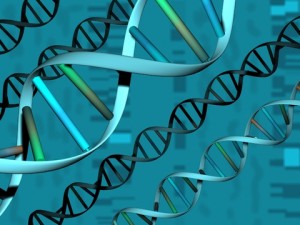The non-science offered by the new atheists
This article is a continuation of my previous post analyzing Installments I – IV of David Sloan Wilson's series of articles titled "Atheism As a Stealth Religion" (Here is Installment I). This article relates to D. S. Wilson’s installments V through VIII. In Installment IV, D. S. Wilson presented six major hypothesis that have been used as plausible evolutionary explanations for religion. In installment V of his eight-part series of articles on atheism as a stealth religion, he indicates that religion is "a fuzzy set," and that each of the six hypotheses he previously offered seem to bear on at least some aspect of religion. The only way to pick and choose which hypotheses truly work is to employ the scientific method, strictly speaking. That is the approach D. S. Wilson has claimed to have done in showing that the super organism hypothesis is more relevant and persuasive than the others.
If you could say only one thing about religion, it would be this: most enduring religions have what Emile Durkheim called 'secular utility.' They define, motivate and coordinate groups to achieve collective goals in this life. They promote cooperation within the group and bristle with defenses against the all-important problem of cheating.… [T]hey score high on practical realism, no matter how much they depart from factual realism along the way.
Wilson argues that the "byproduct" and "individualistic" accounts of religion can be fully reconciled with the superorganism hypothesis. For instance, the byproduct approach often includes the concept of a "hyperactive agency detection device (HADD)" that refers to our over willingness to explain events in terms of actions of "intentional human-like agents." To the extent it exists, such a tendency could have come into existence about for reasons having nothing to do with religion. As such, HADD could well be a byproduct (or an exaptation) that currently contributes to our groupish tendencies. D. S. Wilson's argument reminds me of the concept of "ontological metaphors" offered by Lakoff and Johnson. At bottom, human animals quite often demand intuitive explanatory models for understanding causation with regard to complex phenomena, and a prime method of portraying causation is through some sort of sentient agency. Since there is no evidence of such sentient agency, it becomes a logical move for a motivated individual to argue for a supernatural version of sentient causal power. What are the consequences of accepting the superorganism hypothesis? By choosing among the hypotheses, we can better devise strategies for dealing with religion. Organisms and super organisms "compete, prey upon each other, coexist without interacting and engage in mutualistic interactions." In these ways, superorganisms can be seen to be a special type of secular system akin to governments and business corporations. Religious organizations are not exceptions to the rule on how one conceives of and deals with organizational systems. Religions are, rather, merely one type of organizational system. Granted, they are notable to the extent that they "depart so flagrantly from factual realism," but they are, at bottom, "corporate units." Because they are essentially corporate units, we should expect that they behave comparably to other corporate units with regard to such things as competition and predation. D. S. Wilson notes that he has done quite a bit of research in this area, and is convinced that[T]he majority religions… Originated and spread in a non--violent fashion--think of early Christianity and current versions such as Seventh-day Adventist him. I am not claiming that religious groups are biased toward pacifism, only that they are like secular groups in employing the full range of options in their interactions with other groups.
[More . . . ]
